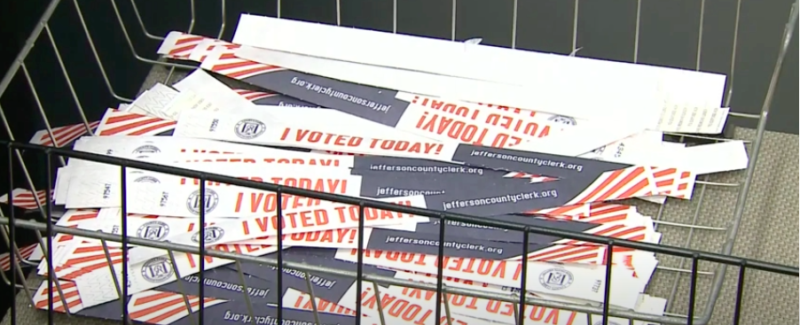Republicans in the Kentucky House of Representatives have introduced legislation that would lead to the elimination of income tax in Kentucky.
House Appropriations and Revenue Chairman Rep. Jason Petrie, R-Elkton, filed House Bill 8 on Friday which would lower Kentucky’s 5 percent income tax incrementally over a period of years until it is eliminated and would offset reductions to the state budget by adding sales taxes to additional goods and services.
If passed and enacted, the first decrease would reduce the income tax rate an entire percentage point to 4 percent on January 1, 2023, leaving an estimated $1 billion in taxpayer pockets to be invested and spent in local communities.
“Kentuckians, those here and those who will move here, recognize that what remains in your pocket at the end of a day’s work determines how you live. We have been very open about our goal to let people keep more of their hard-earned money rather than collecting it for the government to determine how to spend,” Petrie said in a news release. “Population growth is a necessary component of long-term growth in Kentucky and is affected substantially by our tax structure. It is also critical that we get more individuals into the workforce. We cannot continue to build our economy when more than 40 percent of those who should be working are not. HB 8 incentivizes both by allowing more of the fruits of their labor to remain in their pockets.”
Republicans in the House are making the change by leaving money on the table in their most recent budget proposal.
“We reserved funds to take advantage of opportunities like tax modernization. As a result, we have a once-in-a-lifetime opportunity to make long-term, generational change,” added Rep. Brandon Reed, the bill’s cosponsor and Vice Chair of the House Appropriations and Revenue Committee. “Lowering the income tax provides multiple benefits like leaving more money in our local communities. We’re also using this proposal as a tool to grow our workforce and improve the quality of life for all Kentuckians.”
The proposed legislation, which was not immediately available online, requires the state to meet additional revenue targets before additional income rate reductions can occur. According to information provided by House GOP the thresholds to reduce the income tax are based on “organic increases in state revenues together with an expansion of the base of items subject to sales tax.”
The news releases said that House Bill a8 would extend the sales tax to the following services as well as others listed in the bill:
– Non-Primary Residential Electric (primary residences would remain exempt)
– Taxi cabs, car rentals, or transportation services like Uber and Lyft
– Temporary Rental Services (AirBnB, VRBO)
– Advertising, Marketing, and Graphic Design Services
– Residential and Nonresidential Security Systems
– Bodyguard and Self-Protection Services
– Process Servers
– Valet and Parking Services
– Pleasure Watercraft Docking
– Entertainment Venues and Event Space Rentals
– Legislative and Executive Branch Lobbying
– Cosmetic Surgery Procedures (non-medically necessary)
– Personal Financial Planning
– Private Mail Services
– Road and Travel Services
– Executive Employee Recruitment Services
– Unsolicited Telemarketing Services
– Public Opinion Research
“The measure also implements a battery reclamation fee on electric and hybrid motor vehicles and a tax on the use of fee-for-service charging stations. Revenue raised through these mechanisms would be earmarked for the state road fund and general fund.”
Despite what Gov. Andy Beshear said last week in a press conference, the bill offers no reduction in the corporate income tax or the limited liability entity tax (LLET), nor does it include a rumored expansion of the sales tax to traditionally non-taxed items like groceries and medication.
The bill will eventually be available for public review at the Legislative Research Commission’s website.




 Login
Login  Must include at least 8 charaters
Must include at least 8 charaters



